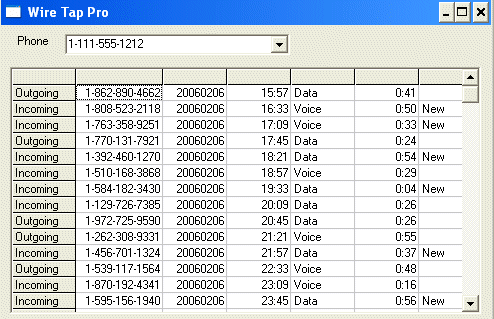 Former President Jimmy Carter, who publicly rebuked President Bush's warrantless eavesdropping program this week during the funeral of Coretta Scott King and at a campaign event, used similar surveillance against suspected spies. "Under the Bush administration, there's been a disgraceful and illegal decision -- we're not going to the let the judges or the Congress or anyone else know that we're spying on the American people," Mr. Carter said Monday in Nevada when his son Jack announced his Senate campaign.
Former President Jimmy Carter, who publicly rebuked President Bush's warrantless eavesdropping program this week during the funeral of Coretta Scott King and at a campaign event, used similar surveillance against suspected spies. "Under the Bush administration, there's been a disgraceful and illegal decision -- we're not going to the let the judges or the Congress or anyone else know that we're spying on the American people," Mr. Carter said Monday in Nevada when his son Jack announced his Senate campaign. "And no one knows how many innocent Americans have had their privacy violated under this secret act," he said. The next day at Mrs. King's high-profile funeral, Mr. Carter evoked a comparison to the Bush policy when referring to the "secret government wiretapping" of civil rights leader Martin Luther King.
But in 1977, Mr. Carter and his attorney general, Griffin B. Bell, authorized warrantless electronic surveillance used in the conviction of two men for spying on behalf of Vietnam. The men, Truong Dinh Hung and Ronald Louis Humphrey, challenged their espionage convictions to the U.S. Court of Appeals for the 4th Circuit, which unanimously ruled that the warrantless searches did not violate the men's rights. In its opinion, the court said the executive branch has the "inherent authority" to wiretap enemies such as terror plotters and is excused from obtaining warrants when surveillance is "conducted 'primarily' for foreign intelligence reasons."
| That was different, of course. Wonder if a NYT or WaPo reporter will call Jimmuah on it? |
Democrats and some Republicans in Congress say FISA guidelines, approved in 1978 when Mr. Carter was president, are the only way the president may conduct surveillance on U.S. soil. Administration officials say the president has constitutional authority to conduct surveillance without warrants in the name of national security. The only way Congress could legitimately curtail that authority, they argue, is through an amendment to the Constitution.
When Mr. Bell testified in favor of FISA, he told Congress that while the measure doesn't explicitly acknowledge the "inherent power of the president to conduct electronic surveillance," it "does not take away the power of the president under the Constitution."
Jamie S. Gorelick, deputy attorney general in the Clinton administration
| And who are we to argue with Ms. Gorelick? |
Republicans say they welcome such criticism because it proves Democrats can't be trusted with national security. "Just when you thought that the Democrats' image of being soft on defense issues couldn't get any worse, enter the sage wisdom of President Jimmy Carter to save the day," said Brian Nick, spokesman for the National Republican Senatorial Committee.
